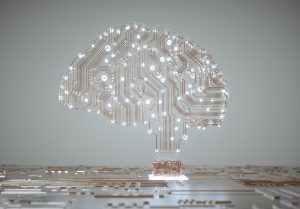How has Artificial Intelligence Impacted the Legal Field?
What is artificial intelligence?
Artificial Intelligence (AI) is the science of programming machines, especially computer systems to think and reason like human beings. These computer systems have been programmed to perform tasks such as problem solving and providing answers to everyday questions, even solving math equations.
Generative Artificial Intelligence is a type of AI technique where the machine perceives and classifies information to produce new and original content. The type of content includes image, music, video, art and design and text generation.
There are different types of generative artificial intelligence services. A few of the most common ones are ChatGPT, Microsoft’s Co-Pilot, Claude and Google Bard. Some are targeted at the legal profession, such as LexisNexis’ AI product which can generate the first draft of a legal document and analyze a judge’s past decisions to tailor a paper to the particular judge.
The Supreme Court’s “2023 Year-End Report on the Federal Judiciary” by Chief Justice Roberts addresses the impact of AI technology on the legal field. “Law professors report with both awe and angst that AI apparently can earn Bs on law school assignments and even pass the bar exam. Legal research may soon be unimaginable without it. AI obviously has great potential to dramatically increase access to key information for lawyers and non-lawyers alike. But just as obviously it risks invading privacy interests and dehumanizing the law,” says Chief Justice Roberts in the report.[1]
What is unique about lawyers using AI as opposed to other professions?
Lawyers are bound by special rules that govern their profession, which may come from their state bar’s ethical rules (i.e. the licensing body’s rules) or from state or federal law. Continue reading →
 Florida Injury Attorneys Blog
Florida Injury Attorneys Blog


